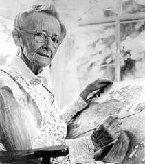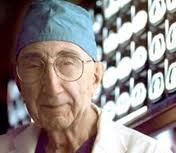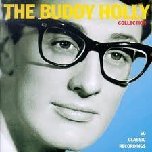Cheerios was introduced on May 1, 1941, as "CheeriOats". The name was shortened to "Cheerios" in 1945 after a competing cereal manufacturer, Quaker Oats, claimed to hold the rights to use the term "oats".
Cheerios' production was based upon the extrusion process invented for Kix in 1937.
In 1976, "Cinnamon Nut Cheerios" was the first departure from the original flavor of Cheerios, over 30 years after the cereal was created; the second was "Honey Nut Cheerios", introduced in 1979.[2] General Mills sold approximately 1.8 million cases of Honey Nut Cheerios in its first year.
Since their introduction, Cheerios have become a popular baby food. Generally first fed to children aged 9-12 months, Cheerios serve to help infants transition to eating solid food, as well as develop fine motor skills.
In January 2014, General Mills announced that it would halt the use of genetically modified ingredients in original Cheerios. However, General Mills notes for Original Cheerios that "trace amounts of genetically modified (also known as 'genetically engineered') material may be present due to potential cross contact during manufacturing and shipping". In February 2015, the company announced that it would be making Cheerios totally gluten-free by removing the traces of wheat, rye, and barley that usually come into contact with the oat supply used to make Cheerios during transportation to the General Mills plant in Buffalo, New York, along Lake Erie.
Many television commercials for Cheerios have targeted children, featuring animated characters (such as a Honeybee). Bullwinkle was featured in early 1960s commercials, with the tag line at the end of the ad being "Go with Cheerios!" followed by Bullwinkle, usually worse for wear due to his Cheerios-inspired bravery somewhat backfiring, saying "...but watch where you're going!" Hoppity Hooper was also featured in ads in the mid-1960s; General Mills was the primary sponsor of his animated program.
Beginning in the mid-1950s and continuing through the early 1960s, "The Cheerios Kid" was a mainstay in Cheerios commercials. The Kid, after eating Cheerios, quickly dealt with whatever problem presented in the commercial, using oat-produced "Big-G, little-o" "Go-power." By the late 1960s, there was a jingle called “Get Yourself Go” (written by Neil Diamond), which played as the two use go power to solve the problem. The character was revived briefly in the late 1980s in similar commercials. In 2012, The Cheerios Kid and sidekick Sue were revived in an internet video that showed how Cheerios "can lower cholesterol." Video clips of "the Kid" and Sue are part of a montage included in a 2014 TV commercial, along with clips of the Honey Nut Cheerios bee's early commercials.
We've got two questions for you. Are you tired of dry baked chicken? And who doesn't love reaching into a bag of potato chips? Well, we've got a recipe that's the best of both worlds. Make our Barbecue Chip Chicken! Barbecue chips add an irresistible crunch and tangy flavor to juicy baked chicken breasts. Try this new chicken for dinner, tonight - it won't disappoint!
- 1/2 cup ranch salad dressing
- 1 teaspoon garlic powder
- 1/4 teaspoon cayenne pepper
- 1 (6-ounce) bag barbecue-flavored potato chips, crushed
- 4 boneless, skinless chicken breast halves (1 to 1-1/2 pounds)
- Preheat oven to 400º. Coat a rimmed baking sheet with cooking spray.
- In a shallow dish, combine dressing, garlic powder, and cayenne pepper; mix well. Place crushed potato chips in another shallow dish. Dip chicken into dressing mixture then into crushed potato chips, coating completely; place on baking sheet.
- Bake 15 to 20 minutes or until chicken is no longer pink.
- To make it easier to dip our Barbecue Chip Chicken in our favorite dipping sauces, we cut the chicken into long strips and turn them into chicken fingers. (By the way, we think this recipe pairs great with our homemade ranch dressing.)
1908 – Michael DeBakey, American cardiac surgeon
1923 – Peter Lawford, British-born American actor (d. 1984)
1954 – Corbin Bernsen, American actor















